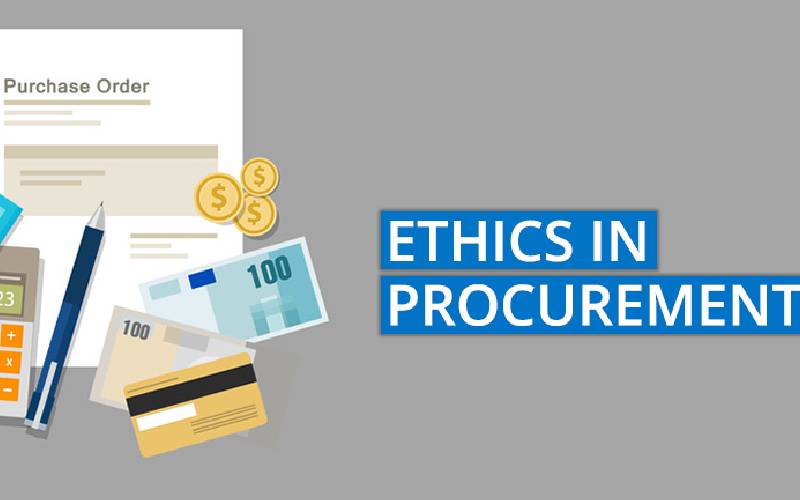
Public procurement is the purchase of goods, services and works by government agencies and State-owned enterprises. These procurements and requisitions are carried out using public or donor funds allocated to these agencies.
All the procurement entities are required by the Supplies Practitioners Management Act 2007 and The Public Procurement Disposal Act 2015 and attendant regulations to engage the services of qualified and licensed practitioners to carry out the business of procurement for the entities.
These public officers hold these offices in trust of the citizens and the government and are expected to serve the public diligently. They ought to manage the resources allocated to various entities fairly and be able to meet the objective of the government and State entities efficiently.
The 2010 Constitution sets new standards with regard to procurement. Article 227 requires public procurement systems to be fair, equitable, transparent, competitive and cost-effective.
It creates a framework under which public procurement is carried out, hence the Public Procurement and Disposal Act and 2020 regulations, Public Finance Act and other Acts, regulations and cabinet memos.
It is important to take note that procurement does not take place in a vacuum,
Bad practices in the supply chain take place in various forms including tenderpreneurs, businessmen, politicians, brokers and various players colluding to defeat the very process that has been put in place to create an opportunity for fair competition and increase efficiency, effectiveness and transparency.
This takes place in the form of bid-rigging, bid collusion, falsification of bidding information or documents, dishonesty carried out by bidders and many other different forms.
These actors normally have to collude normally to influence the final outcome of the process. Statistics from Ethics and Anti-Corruption Commission (EACC) indicate that it received and investigated 6,021 cases of corruption.
The 2020 Corruption Report by Transparency International Places Kenya at position 34 out of 124 countries.
A similar report in 2017 ranked Kenya at position 143 out of 180 countries on Transparency International’s (TI) corruption index. Hence corruption from various sectors of the economy is hindering development and endangering democracy.
Hence, it's important that the players, actors and interest groups understand how this is affecting the growth of our economy. Slowing down government projects and affecting the economic blueprints being implemented.
To promote ethical practices and accountability within our supply chains, colleges and universities must create integrity clubs that teach anti-corruption lessons to students, develop courses in ethics which must be compulsory and help them become active citizens who promote good values.
It is also important that professional bodies and regulators engage procurement practitioners actively on ethical issues and implement various codes of conduct and ethics.
Engaging citizens in the fight against corruption is important by having them understand the budgetary issues of the government. They can attend meetings (barazas) to obtain information as well as understand.
Procurement professionals have a role to play in making the public understand the issues around supply chain processes and regulations.
We can only demand accountability of public funds by participating in the budgeting process in counties, political jurisdictions and organisations of interest.
Kenyans must also scrutinise the implementation status of various projects to know whether they are getting value for money and create an environment that discourages graft.
The writer is a procurement practitioner and a supply chain expert and can be reached at [email protected]
 The Standard Group Plc is a multi-media organization with investments in media
platforms spanning newspaper print
operations, television, radio broadcasting, digital and online services. The
Standard Group is recognized as a
leading multi-media house in Kenya with a key influence in matters of national
and international interest.
The Standard Group Plc is a multi-media organization with investments in media
platforms spanning newspaper print
operations, television, radio broadcasting, digital and online services. The
Standard Group is recognized as a
leading multi-media house in Kenya with a key influence in matters of national
and international interest.

